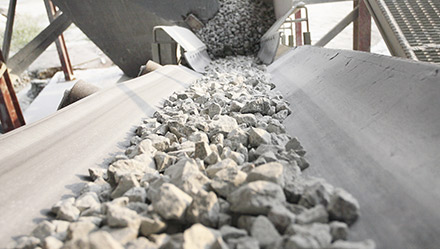Stone crushing process in Kosovo becomes more efficient

Investor
A construction company

Location
Lipjan, Kosovo

Investment
New stone crushing line

Investment Size
€500,000

Financial results
Payback period of 5.1 years; €98,745 of cost savings per year

Energy savings
57%

Water savings
38%

CO2 savings
380 tonnes of CO2 per year

Donor
EU, Norway

The supplier of construction materials faced difficulties with its existing stone crushing equipment. Since demand was increasing, the company decided to replace old machinery with a new one producing gravel of a different fraction.
The company uses electricity and diesel for its production. The investment in a new machine aimed to reduce energy consumption, therefore the company contacted KoSEP for financing.
The KoSEP team supported the company with analysis of the proposed technologies, in particular, the potential for energy savings and the financial-technical parameters of the project.
The €500,000 investment allowed the company to decrease its electricity and diesel consumption by 57 per cent amounting to €98,745 of cost savings per year. This means the investment will be repaid out of energy savings in slightly over five years, turning the future cash-flows into company income for the years to follow. In addition, the new equipment saves 38 per cent of water consumption, which significantly reduced the CO2 emissions by 380 tonnes per year.
This project demonstrates that energy efficiency investments are usually coupled with other benefits, such as process optimisation and other reduced costs. Therefore, it is worth checking the energy saving potential of all such investment measures, to see if they can bring additional cash-flows from reduced energy consumption.
The EBRD, through KoSEP, supports the sustainable financing and implementation of energy efficiency and renewable energy projects by the private sector. Together, the private, residential and public sectors can make a change in energy consumption patterns and contribute to environmental protection.
This project was supported by the European Union (EU) and the Norwegian Ministry of Foreign Affairs.



